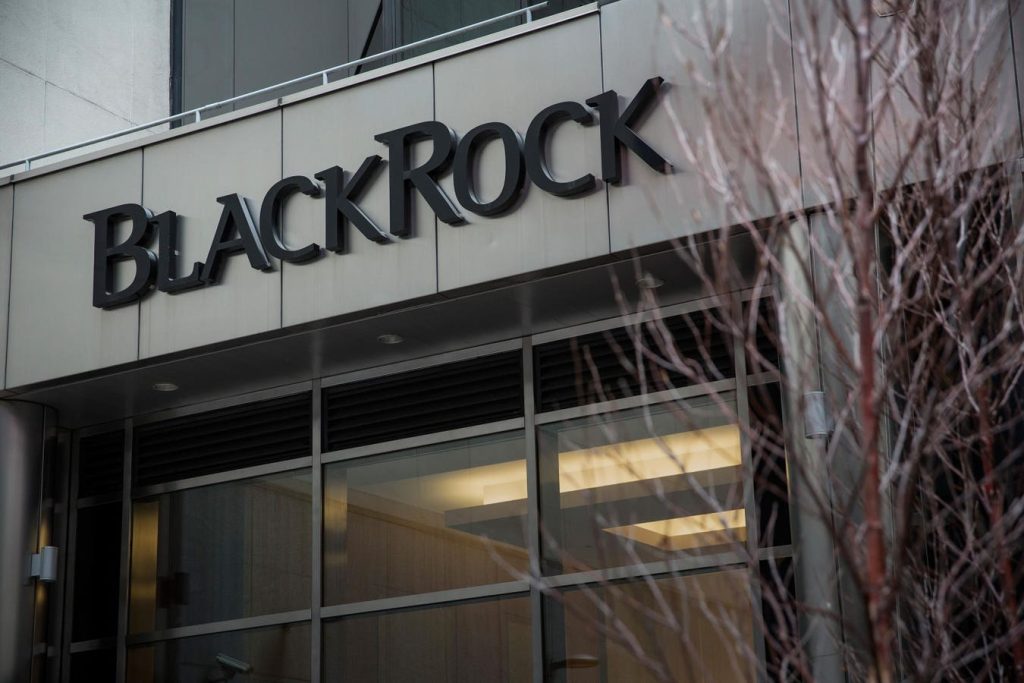BlackRock Embraces Bitcoin: A Seismic Shift in Investment Strategy
The world’s largest asset manager, BlackRock, has sent ripples through the financial world with its latest research report advocating for the inclusion of Bitcoin in traditional investment portfolios. This marks a significant departure from the historical skepticism surrounding cryptocurrencies and suggests a growing acceptance of digital assets within mainstream finance. The report, titled "Sizing Bitcoin In Portfolios," argues that Bitcoin, despite its volatile nature and speculative status, deserves a place alongside established giants like Apple and Amazon in a balanced portfolio. BlackRock’s recommendation of a 1% to 2% allocation in a standard 60/40 portfolio (60% stocks, 40% bonds) could trigger a massive influx of capital into the cryptocurrency market, potentially reshaping the financial landscape.
The rationale behind BlackRock’s endorsement hinges on several key factors. Firstly, the report draws parallels between Bitcoin and the "Magnificent Seven" tech stocks – Apple, Microsoft, Amazon, Nvidia, Tesla, Meta, and Alphabet (Google) – which have dominated market performance in recent years. While acknowledging the fundamental differences between Bitcoin and these revenue-generating companies, BlackRock highlights the comparable risk profile of a small Bitcoin allocation relative to holding individual stocks of these tech giants. This comparison aims to normalize Bitcoin within the context of existing portfolio strategies and mitigate concerns about its speculative nature.
Secondly, BlackRock emphasizes Bitcoin’s historically low correlation with traditional asset classes. This characteristic, the report suggests, makes Bitcoin a valuable diversification tool, potentially mitigating portfolio losses during market downturns. While acknowledging the increased correlation between Bitcoin and tech stocks during the COVID-19 pandemic, BlackRock anticipates a decoupling driven by factors such as geopolitical instability, declining trust in traditional banking systems, and growing global deficits. These factors, they argue, uniquely position Bitcoin as a hedge against systemic risks.
The report’s authors, led by Samara Cohen, Chief Investment Officer of ETF and Index products, acknowledge the inherent volatility of Bitcoin, which has experienced dramatic price swings in the past. This volatility, they caution, necessitates a conservative approach to allocation. Their analysis indicates that while a 1% to 2% Bitcoin allocation introduces a manageable level of risk, comparable to holding a Magnificent Seven stock, higher weightings can exponentially increase portfolio volatility. A 4% allocation, for instance, would contribute a disproportionately high 14% to overall portfolio risk, rendering it unsuitable for most investors.
BlackRock’s embrace of Bitcoin is not entirely surprising, given its increasing involvement in the cryptocurrency space. The firm partnered with Coinbase in 2022 to facilitate institutional Bitcoin purchases and currently manages the world’s largest Bitcoin ETF, the iShares Bitcoin Trust (IBIT). However, the explicit recommendation for portfolio inclusion signals a significant shift in the firm’s stance, potentially influencing other institutional investors to follow suit. This institutional adoption could further legitimize Bitcoin and drive its integration into the mainstream financial system.
The potential implications of BlackRock’s recommendation are far-reaching. A mere 1% allocation of BlackRock’s $5.2 trillion equity holdings would represent a $50 billion injection into the Bitcoin market, significantly impacting supply and demand dynamics. This surge in demand could propel Bitcoin’s price even higher, potentially attracting further investment and accelerating its mainstream adoption. However, the report also cautions that future price appreciation may become more challenging as Bitcoin’s role evolves from a speculative asset to a more established hedging instrument, similar to gold.
While BlackRock’s endorsement provides a significant boost to Bitcoin’s credibility, it also underscores the importance of careful consideration and risk management. The report’s emphasis on conservative allocation and the acknowledgement of Bitcoin’s volatility serve as crucial reminders for investors. The potential for high returns must be balanced against the inherent risks associated with this nascent asset class. As the cryptocurrency market continues to mature and evolve, navigating its complexities will require a nuanced approach that prioritizes both potential and prudence. The long-term impact of BlackRock’s move remains to be seen, but it undoubtedly marks a pivotal moment in the ongoing integration of digital assets into the global financial system.














